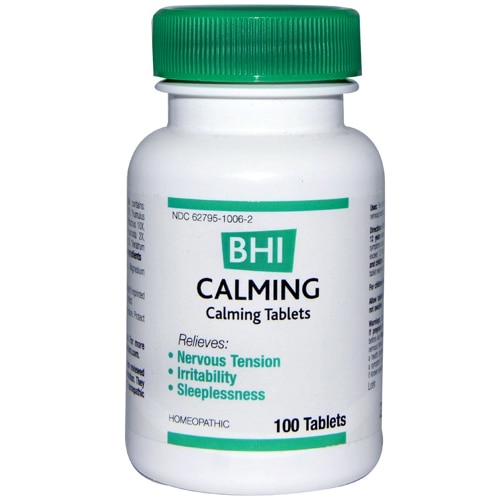Worrying is something most of us do every day. We worry about our jobs, about bills that need to be paid, our diets, our pets, our relationships and so much more. But when everyday worries become constant and seemingly uncontrollable, it negatively affects the quality of our lives. Uncontrollable worrying, anxiety and always anticipating worst-case scenarios can hurt your physical and emotional health.

Constant worry can exhaust your emotional strength, as well. It can make you restless and lead to headaches, muscle tension, stomachaches and insomnia. It can also have negative effects on your relationships, social life, productivity at work and performance at school. The good news is that there are steps you can take to take control of worry. Here are five strategies to put in place now.
1. Choose a “worry time.”
When worry and anxiety take over your thoughts and affect your concentration at work or school, your productivity tends to decline.
Postponing worrying is a thoughtful strategy that can prove helpful in this situation. Instead of attempting to stop or eliminate an anxious thought, you can set aside time to have it, but avoid getting stuck on it.
Start by picking a time and a specific place for worrying. Ensure it’s the same time daily and not right before bedtime. For instance, in the kitchen from 4 to 5 p.m. is a perfect “worry time.” During this set slot, you can let worry and anxiety fill your thoughts. But the rest of the day should be worry-free.
You can note worries or anxious thoughts that cross your mind during the day, but don’t dwell on them. Go through your list of worries during your worry time and think about them. Once you get accustomed to this strategy, a significant part of your day will be a worry-free.
2. Train yourself to accept uncertainty.
Given that uncertainty is a normal part of life, you must keep in mind that you’ll albe part ofways have to deal with some uncertainty. By accepting that unforeseen things happen, you will lower your anxieties and life will get better.
Forming expectations is a recipe for disappointment. If you’re always expecting the worst, chances are you’ll be too close-minded to detect and take advantage of opportunities. If you’re always expecting the best, you’ll always have an over-ambitious vision. So, instead of having expectations, you should put a solid plan in place for what you want to experience.
3. Reveal your worries to a trustworthy person.
Talking to a trustworthy family member or close friend – someone who will give you a listening ear without judging, condemning or being overly distracted – is a fantastic way to overcome worry. Revealing your worries can help make them feel less threatening.
When you keep worries to yourself, they can easily pile up and take a toll on your everyday life. Talking about your worries and anxieties helps you to understand your feelings and put them into perspective. It also allows you to separate unnecessary worries from justified ones.
4. Disrupt your worry cycle.
Persistent, constant worry can make you feel like you don’t have control over your life. You may feel like you’re going crazy or are on the brink of suffocating under the pressure of negative thoughts. Fortunately, there are things you can do to disrupt distressing thoughts and allow yourself a break.
Exercise regularly. Working out regularly provides effective relief for anxiety since it triggers the release of endorphins that alleviate tension and stress,
enhance energy and improve your overall health. What’s more, exercise helps you concentrate on what your body feels rather than the anxieties and worries trying to dominate your thoughts.
There are countless studies that have analyzed the effect of exercise on our bodies, and there’s no doubt it offers both physical and mental health benefits. According to Harvard Review: “Getting our heart rate up changes brain chemistry, increasing the availability of important anti-anxiety neurochemicals, including serotonin, gamma-aminobutyric acid (GABA), brain-derived neurotrophic factor (BDNF), and
endocannabinoids.
Introduce indoor plants to your workstation and home. Interacting with
indoor plants daily can be a great anti-anxiety treatment. Interacting with the potting soil itself can ease everyday stress and negative thoughts. So, consider introducing indoor plants to your home and workspace. Provide them with all the necessities they require to grow into healthy, mature plants. You can even install an
LED grow light to supplement the natural light, so your indoor plants thrive.
Spend quality time with your loved ones. Being surrounded by your loved ones is actually a great way to reduce levels of worrying. Sometimes, we tend to worry about even the most simple things, things which normally shouldn’t even be taken into consideration. However, by spending more time with our loved ones, we can work through these thoughts and problems. They will be there for us, by listening and providing comfort. While this may not make problems to go away, it reduces the stress effects on our bodies and minds.
5. Practice mindfulness.
Mindfulness – or being present in the moment – allows thoughts to run through your mind and disappear after some time. This strategy helps you make sense of your feelings and realize where negative thoughts are causing problems.
Mindfulness helps you focus on the present. It allows you to be aware of what your body feels, your breathing rhythm, your shifting emotions and the constant flow of thoughts in your mind. It also helps prevent you from getting stuck on a specific worrying thought.
A parting note
These five strategies can help you deal with worries and
anxieties. Coping techniques are a good tool to deal with overwhelming feelings and retain a sense of peace and tranquility. If troubles persist, be sure to talk to your healthcare provider.
Featured products:



 Constant worry can exhaust your emotional strength, as well. It can make you restless and lead to headaches, muscle tension, stomachaches and insomnia. It can also have negative effects on your relationships, social life, productivity at work and performance at school. The good news is that there are steps you can take to take control of worry. Here are five strategies to put in place now.
Constant worry can exhaust your emotional strength, as well. It can make you restless and lead to headaches, muscle tension, stomachaches and insomnia. It can also have negative effects on your relationships, social life, productivity at work and performance at school. The good news is that there are steps you can take to take control of worry. Here are five strategies to put in place now.






